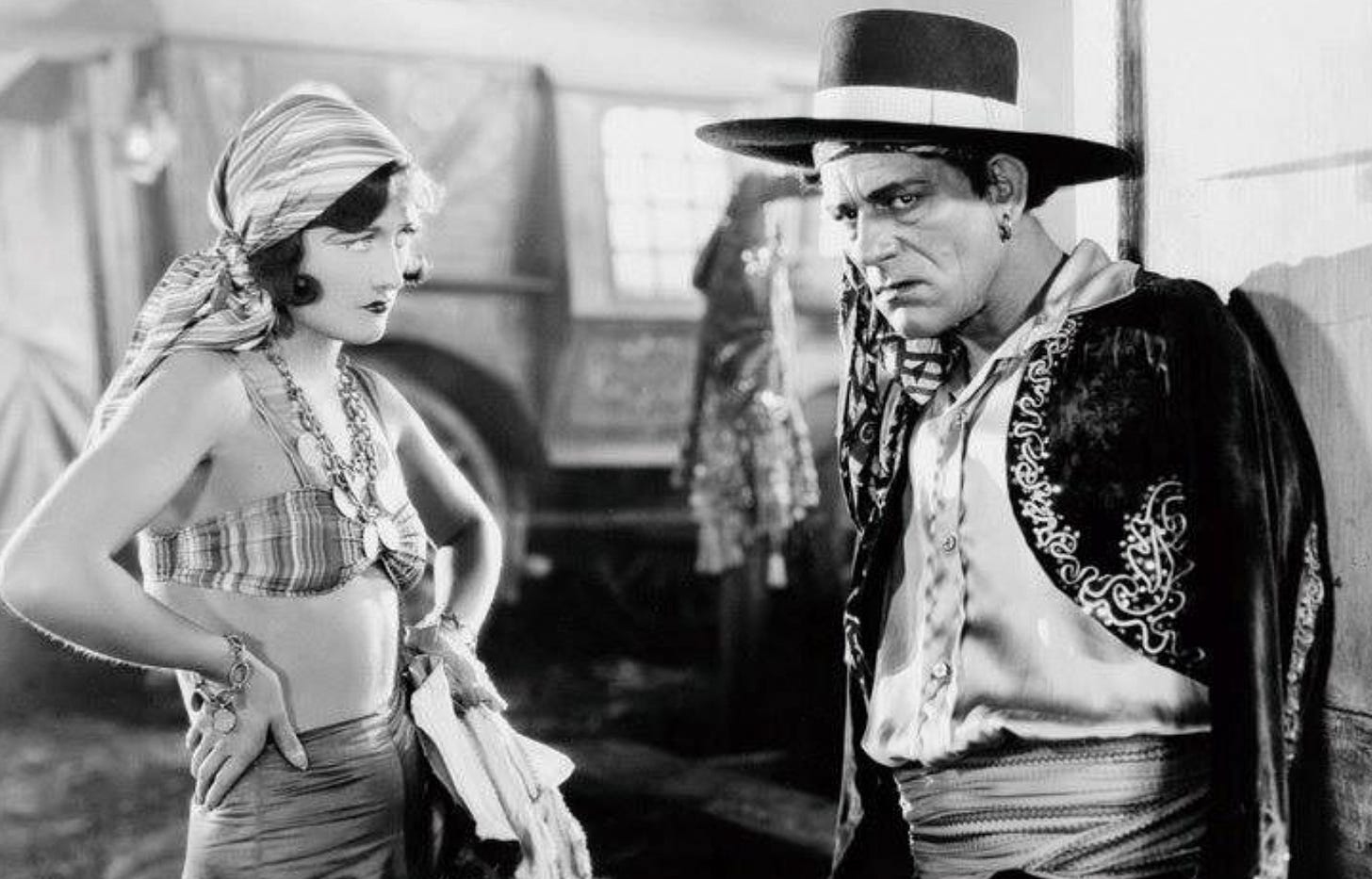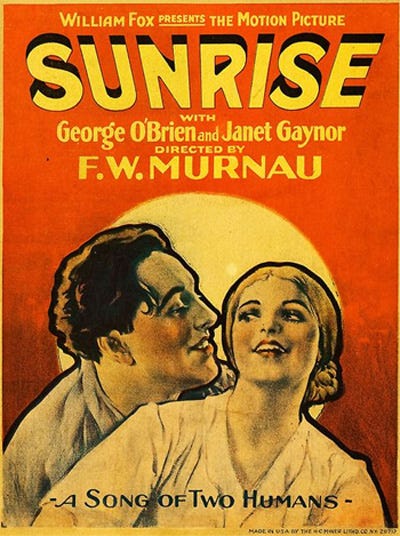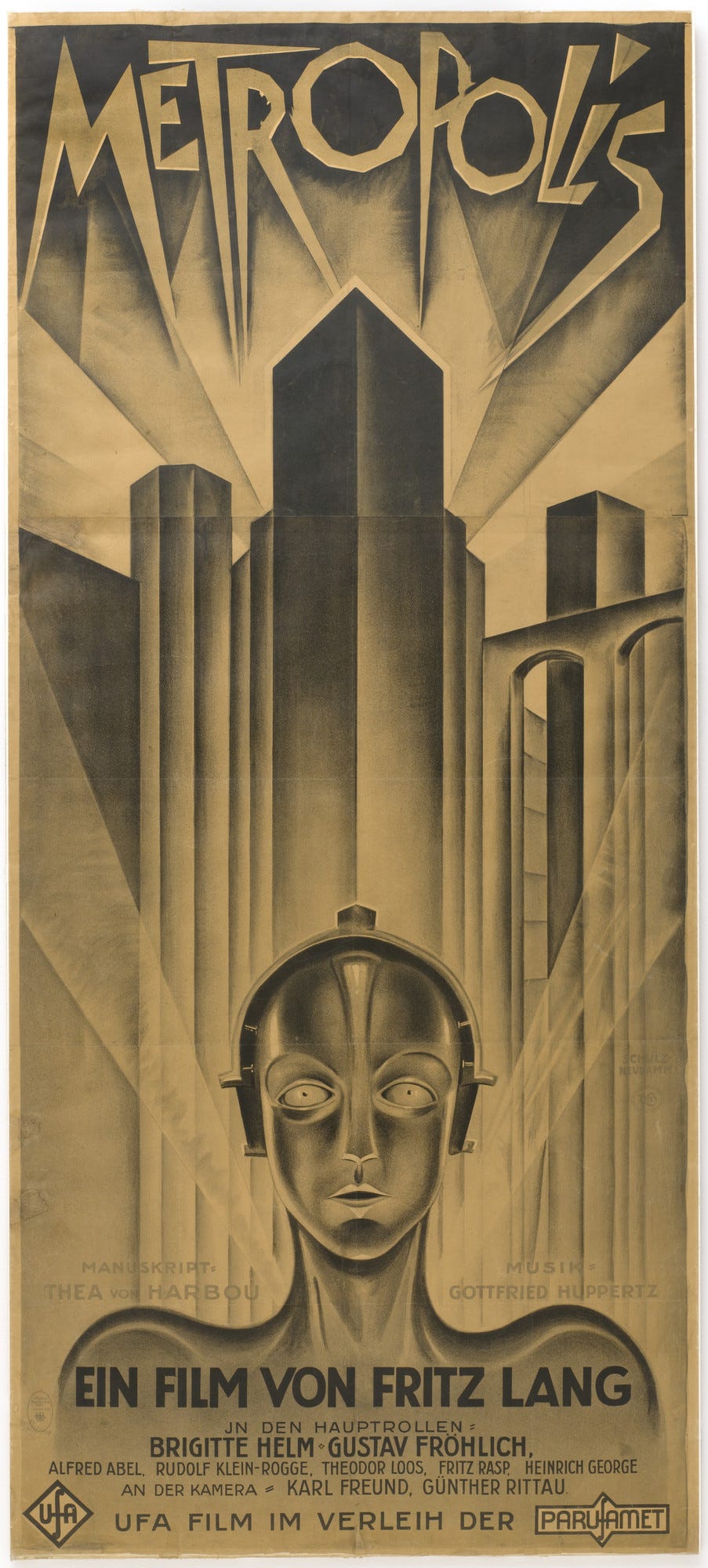The Stars That Belong To Everyone
“So that was the Lighthouse, was it? No, the other was also the Lighthouse. For nothing was simply one thing”― Virginia Woolf
Happy 2023! And Happy Public Domain Day (plus 1). With every new year comes new artistic works that slip into the public domain. Literature like Virginia Woolf’s To The Lighthouse or certain compositions like Louis Armstrong’s Potato Head Blues or films like Fritz Lang’s Metropolis…all so important and legendary to our culture, to humanity, can now be copied, manipulated, distributed, sold, purchased without any ownership entanglements or binding contracts. They are owned by no one, by everyone.
The rules behind public domain are pretty simple: any copyrighted item goes into the public domain 95 years from release. Of course since industries (like the music industry) are continually fighting to protect their copyrights, sometimes the public domain timing is confusing. Musical compositions ARE bound by the rules we just discussed but the recordings ARE NOT, instead having 5 more years of staying out of the public domain (and there are no recordings going into public domain this year because the government prematurely released the class of 1923 last year when it ushered in all recordings starting from the earliest til ‘23). The rules that govern what is in public domain are different in every country.
January 1st has become known as Public Domain Day, given the nature of how the laws work. Articles pop up with lists of some of the most well known copyrights that have aged into the public domain. Topping the list this year are definitely the aforementioned works of Woolf, Armstrong and Lang along with lesser known works from William Faulkner, Agatha Christie, James Joyce, Ernest Hemingway and Edith Wharton. Classics like Herman Hesse’s Steppenwolf, Franz Kafka’s Amerika and Marcel Proust’s Le Temps retrouvé (the final part of his In Search Of Time opus) were released in their native languages. The final stories of Sir Arthur Conan Doyle’s Sherlock Holmes are also part of this class as are the first Hardy Boys stories by Franklin W. Dixon.
What I love about Public Domain Day is the focus it offers to works of art that are both still loved and often forgotten or just not in top-of-mind public consciousness. I had never heard of Edith Wharton’s Twilight Sleep…but its focus on lifestyles of the Jazz Age sound enticing; even though I wrote my college thesis on Joyce, I have never read his poetry (although everything he did was poetic) and I will definitely be digging into it in the upcoming days.
Here are some of my favorite (incomplete) copyrighted works that went into the public domain this past January 1, 2023 (skipping the obvious ones already mentioned)…
The Unknown (film): You cannot go wrong with ANY film directed by Todd Browning and starring Lon Chaney, and this film is one of their darker collaborations. It is a circus tale with Chaney playing a criminal-faking-being-a-no-armed knife thrower and a very young Joan Crawford who plays the beautiful daughter of the circus owner who hates being touched and who takes pity on armless Chaney. The film takes a very demented, horrific turn.
The Colour Out of Space (short story): I first read this H.P. Lovecraft story after seeing the recent Nicholas Cage sci-fi film based on it. The story of how a meteor causes major unnatural mutations and chaos in a forrested area offers fantastic psychedelic reading, foreshadowing Jeff Vandermeer’s Southern Reach trilogy.
Emak Bakia (“Leave Me Alone”) (short film): Two years before the release of the groundbreaking Un Chien Andalou by Salador Dalí and Luis Buñel, artist Man Ray released this abstract exploration showcasing the style he became known for in his photography, using it to push the envelope on this still new world of filmmaking.
Sunrise: A Song of Two Humans (film): Sunrise is one of my favorite films by one of my favorite directors. When F. W Murnau immigrated to the US, he followed up his last, great, German film Faust with this even better film about marriage, love and potential murder and loss. There is so much heart baked into this story as well as Murnau’s wonderful camera work that gives a dreaminess and fairytale quality to this very human story about a relationship that has lost its spark. The film shared a Best Picture award at the very first Accademy Awards with the not-as-good Wings.
October Blast (poetry): This William Butler Yeats collection of poems contains one of my favorites of his—one of my favorite poems ever: Sailing To Byzantium which is an exploration into aging and mortality. The whole collection finds the legendary poet at the height of his artistry.
Prelude (short film): Castleton Knight is known more for producing and directing newsreels in Great Britain as well as putting together a documentary in 1953 around the coronation of Queen Elizabeth II. But in 1927, he released an experimental film based on the Edgar Allan Poe classic, Premature Burial.
Napoléon (film): It is hard to completely understand the greatness of Abel Gance’s 330 minute epic without seeing it in a theater. And even though it is in public domain now, because the only way to see it is through a restored…and thus newly copyrighted version (leading to a deeper conversation about how versions of restored public domain holdings are owned by those doing the restoring), seeing the complete Napoléon is a little more difficult than seeing Metropolis or The Unkown. But given that Abel created a film that mind-blowingly expands into a three-screen experience in its final chapters, something my friend Dan Zoll and I witnessed in an Oakland theater a few years ago, maybe it is ok that that this film’s public domain standing does not make it easily accessible. .
Journey of the Magi (poem): T. S. Eliot had become very religious a year before writing this poem. And while Journey Of The Magi follows one of the journeymen going to visit the Christ child, the poem is not a religious poem in my opinion but instead a study on the affect of the difficulty of one’s solitary journey through an unforgiving and difficult world, a journey that questions the point of it all.
Putting On The Ritz, The Best Things In Life Are Free and My Blue Heaven (compositions): I debated highlighting any of the compositions that went into public domain this year because it feels so wrong to salute, for instance, Duke Ellington’s Black and Tan Fantasy when we have to wait another five years to celebrate his recording of it. But these three songs have woven themselves so deeply into our cultural fabric that they are beyond being anchored to one recording or one artist.
Sonnet To A Negro in Harlem (poem): Helene Johnson was one of the younger Harlem Renaissance-era poets but her voice was powerful and offered an examination of ghetto life that was distinctively raw. This sonnet is one of her more well known poems, and is a killer.
To The Lighthouse (novel): OK…I said I was not going to include any of the bigger works that are on all the headlines of all the articles written about Public Domain Day. But Woolf’s novel is so impactful…so modern in its use of narration…so influential to generations of writers, of feminists, of students of literature. Its slipping into public domain will make it even more accessible than ever before, continuing to grow its impact 95 years after its first publication.
Journey of the Magi
By: T S Eliot
A cold coming we had of it,
Just the worst time of the year
For a journey, and such a long journey:
The ways deep and the weather sharp,
The very dead of winter.’
And the camels galled, sorefooted, refractory,
Lying down in the melting snow.
There were times we regretted
The summer palaces on slopes, the terraces,
And the silken girls bringing sherbet.
Then the camel men cursing and grumbling
and running away, and wanting their liquor and women,
And the night-fires going out, and the lack of shelters,
And the cities hostile and the towns unfriendly
And the villages dirty and charging high prices:
A hard time we had of it.
At the end we preferred to travel all night,
Sleeping in snatches,
With the voices singing in our ears, saying
That this was all folly.
Then at dawn we came down to a temperate valley,
Wet, below the snow line, smelling of vegetation;
With a running stream and a water-mill beating the darkness,
And three trees on the low sky,
And an old white horse galloped away in the meadow.
Then we came to a tavern with vine-leaves over the lintel,
Six hands at an open door dicing for pieces of silver,
And feet kicking the empty wine-skins.
But there was no information, and so we continued
And arriving at evening, not a moment too soon
Finding the place; it was (you might say) satisfactory.
All this was a long time ago, I remember,
And I would do it again, but set down
This set down
This: were we led all that way for
Birth or Death? There was a Birth, certainly
We had evidence and no doubt. I had seen birth and death,
But had thought they were different; this Birth was
Hard and bitter agony for us, like Death, our death.
We returned to our places, these Kingdoms,
But no longer at ease here, in the old dispensation,
With an alien people clutching their gods.
I should be glad of another death.
Sonnet To A Negro in Harlem
By: Helene Johnson
You are disdainful and magnificant—
Your perfect body and your pompous gait,
Your dark eyes flashing solemnly with hate,
Small wonder that you are incompetent
To imitate those whom you so despise—
Your shoulders towering high above the throng,
Your head thrown back in rich, barbaric song,
Palm trees and mangoes stretched before your eyes.
Let others toil and sweat for labor's sake
And wring from grasping hands their need of gold.
Why urge ahead your supercilious feet?
Scorn will efface each footprint that you make.
I love your laughter arrogant and bold.
You are too splendid for this city street.
Sailing To Byzantium
By: W. B. Yeats
That is no country for old men. The young
In one another's arms, birds in the trees
—Those dying generations—at their song,
The salmon-falls, the mackerel-crowded seas,
Fish, flesh, or fowl, commend all summer long
Whatever is begotten, born, and dies.
Caught in that sensual music all neglect
Monuments of unageing intellect.
An aged man is but a paltry thing,
A tattered coat upon a stick, unless
Soul clap its hands and sing, and louder sing
For every tatter in its mortal dress,
Nor is there singing school but studying
Monuments of its own magnificence;
And therefore I have sailed the seas and come
To the holy city of Byzantium.
O sages standing in God's holy fire
As in the gold mosaic of a wall,
Come from the holy fire, perne in a gyre,
And be the singing-masters of my soul.
Consume my heart away; sick with desire
And fastened to a dying animal
It knows not what it is; and gather me
Into the artifice of eternity.
Once out of nature I shall never take
My bodily form from any natural thing,
But such a form as Grecian goldsmiths make
Of hammered gold and gold enamelling
To keep a drowsy Emperor awake;
Or set upon a golden bough to sing
To lords and ladies of Byzantium
Of what is past, or passing, or to come.










